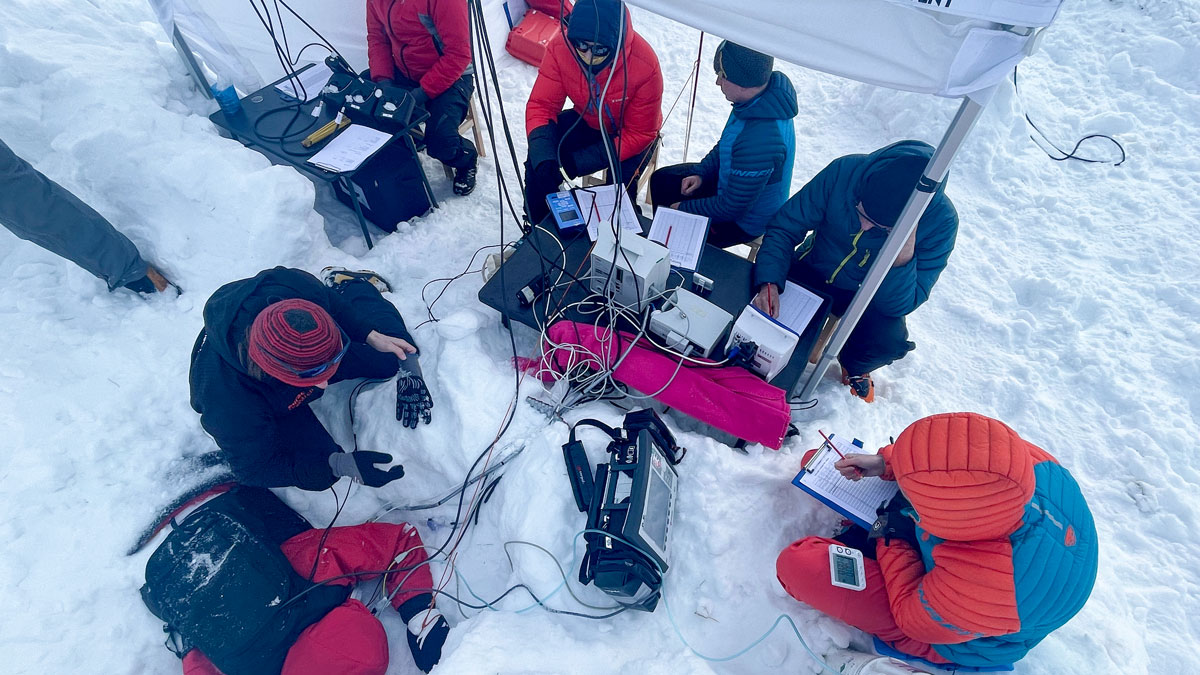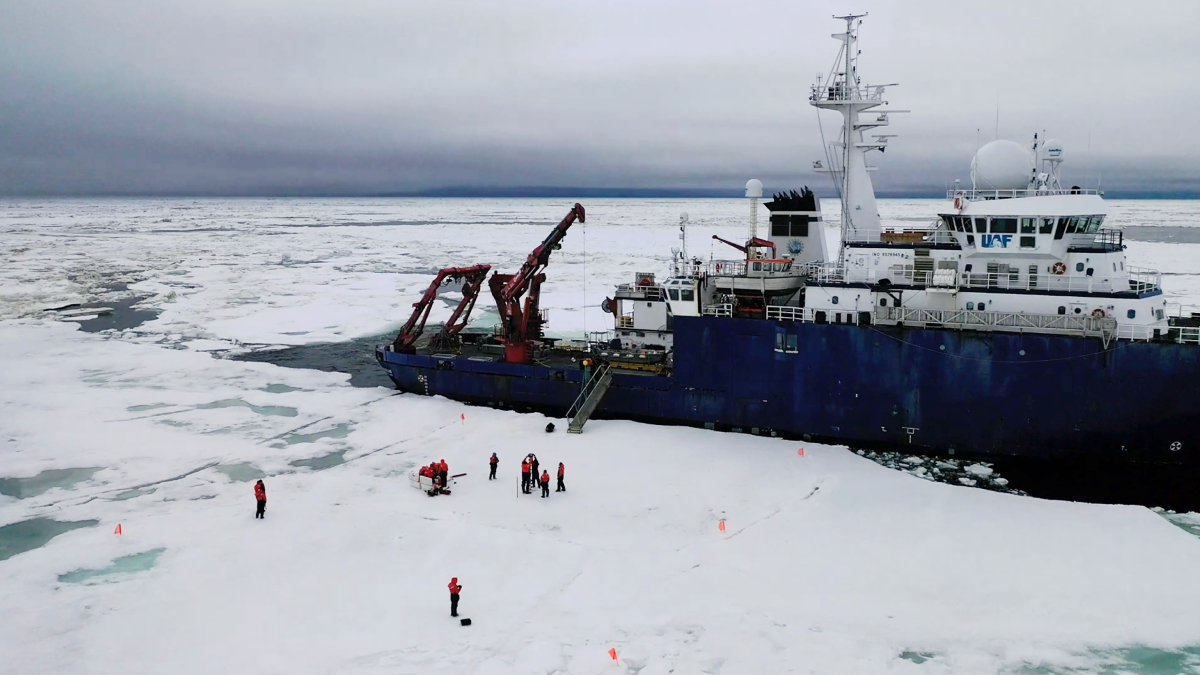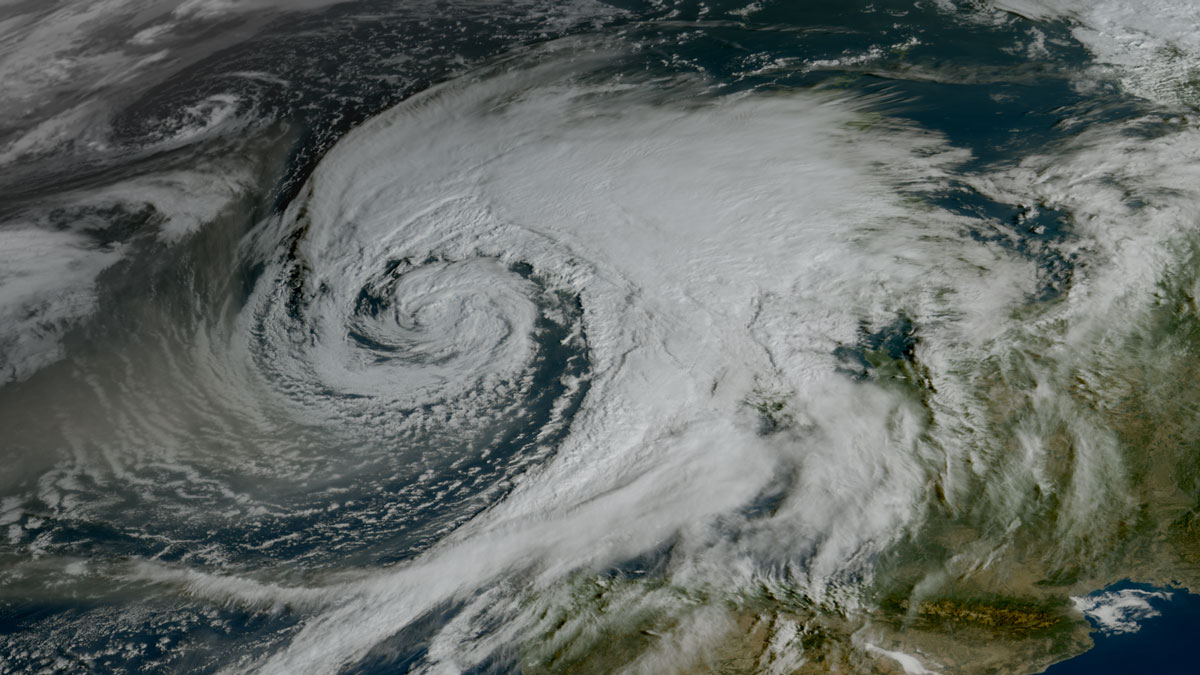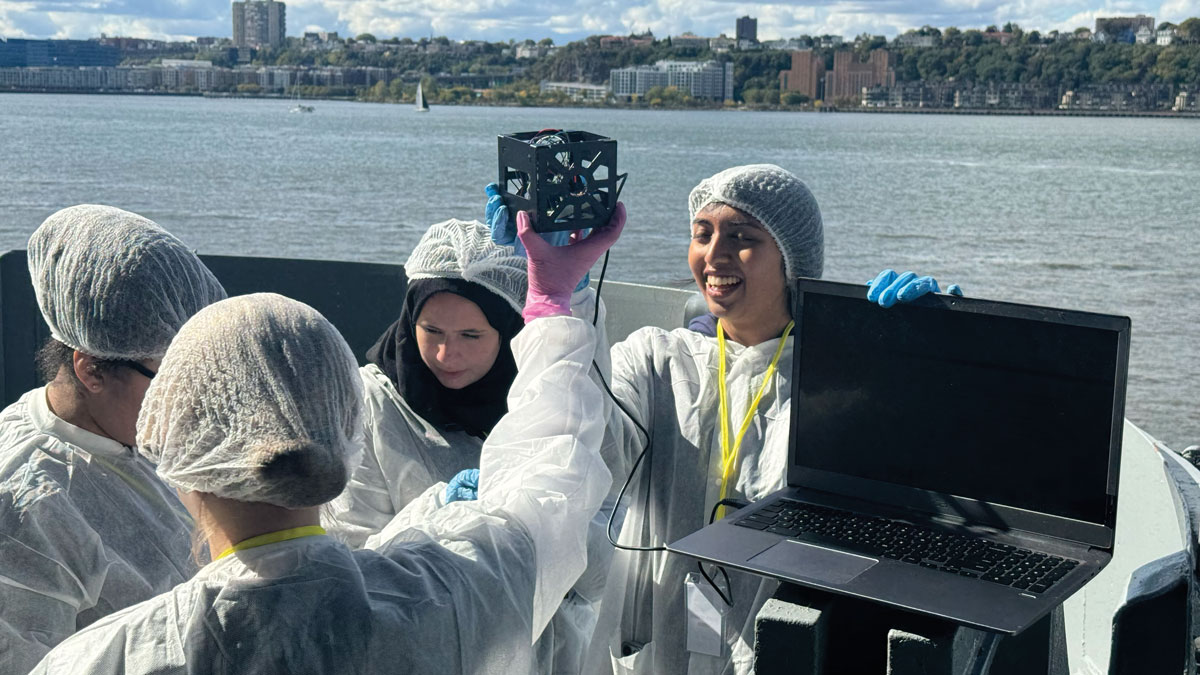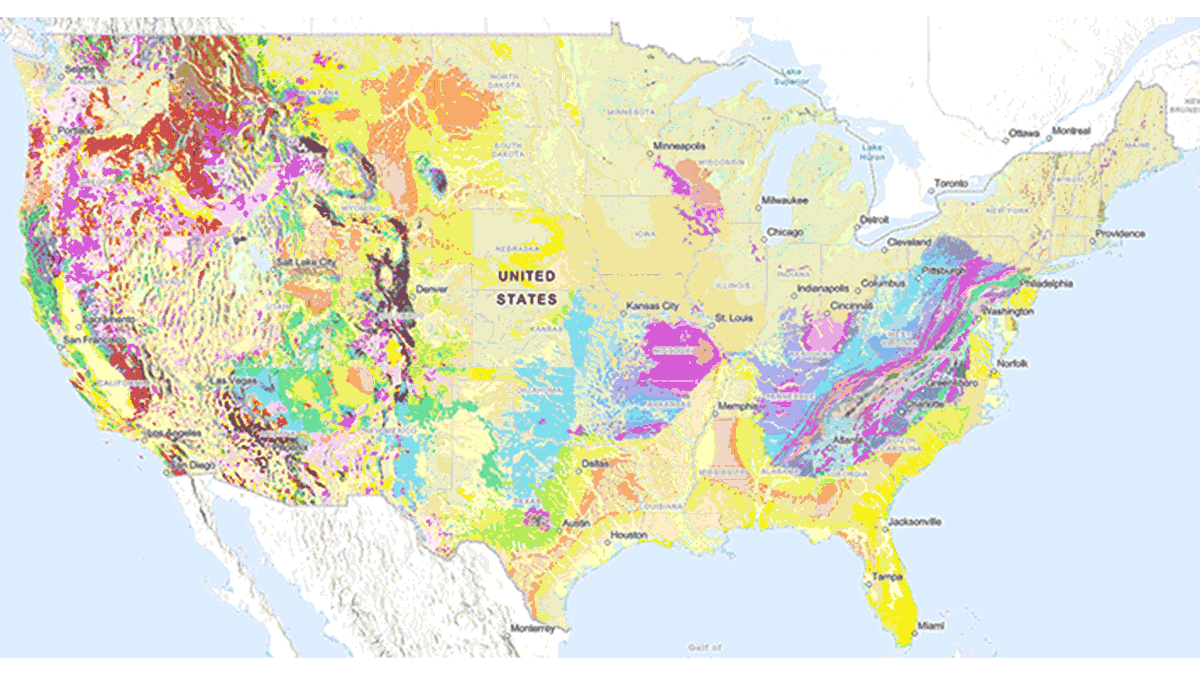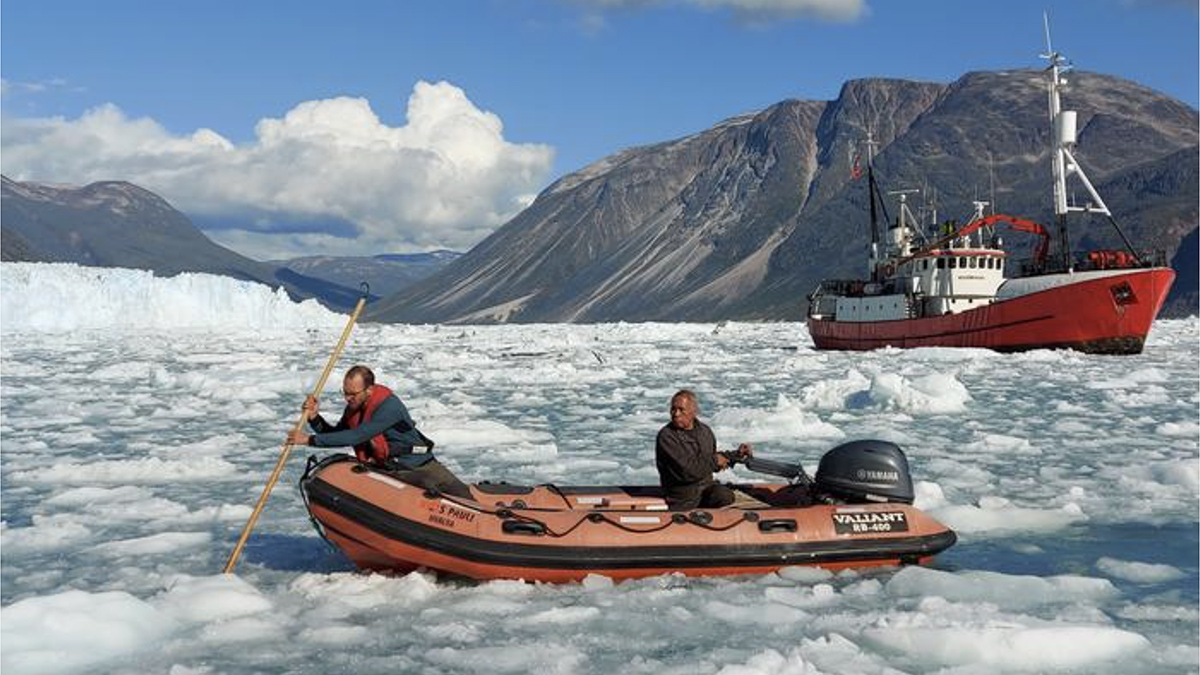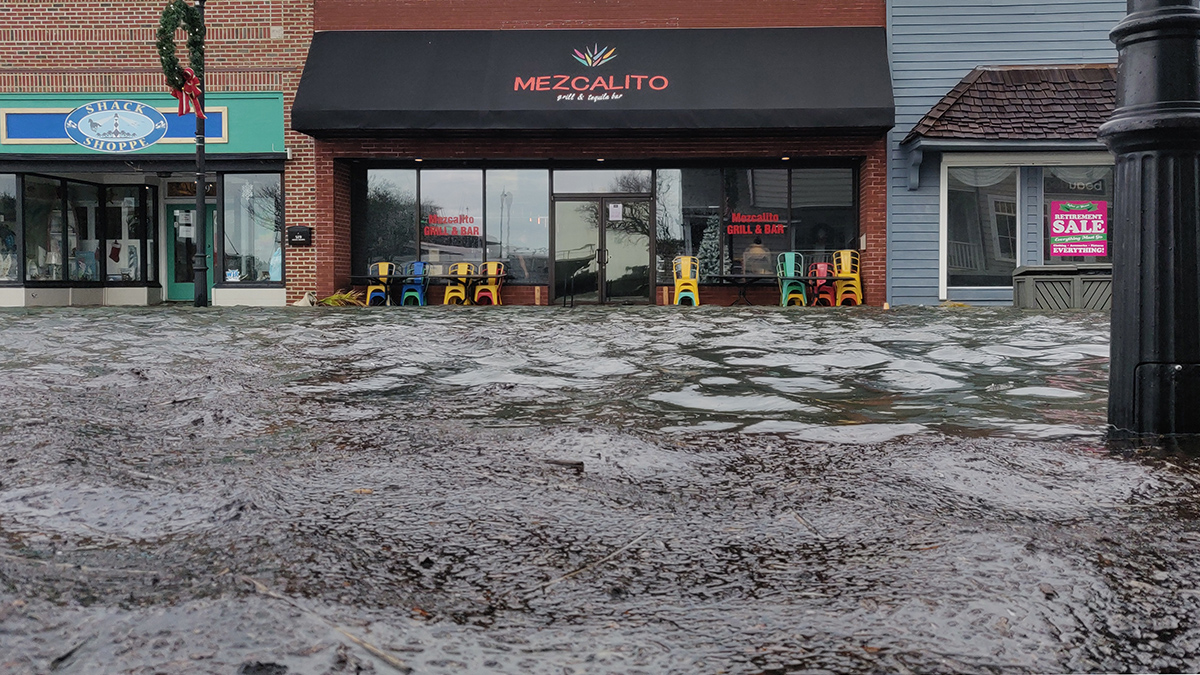A new database provides a comprehensive who’s who of scientists in solar and heliospheric physics research, offering a valuable resource for that community and a model for other fields to follow.
cool tools
Celebrating the MacGyver Spirit: Hacking, Tinkering, Scavenging, and Crowdsourcing
The MacGyver sessions allow scientist-tinkerers to have “nerd-on-nerd” discussions about do-it-yourself gadgets and gizmos.
Safety Device Supplies Life-Saving Air in an Avalanche
An Alpine medical team buried 24 volunteers in a mountain pass. Their study confirmed the efficacy of the Safeback SBX, which uses snow’s natural porosity to supply air to buried avalanche victims.
Ice Diatoms Glide at Record-Low Temperatures
New observations reveal how microscopic organisms move through polar ice and illustrate how they may have evolved to thrive in extreme environments.
The AI Revolution in Weather Forecasting Is Here
The past decade has seen explosive growth in forecasting research and applications using AI. Sophisticated new approaches show vast potential to support public safety, health, and economic prosperity.
Small Satellites, Big Futures
Programs that teach students to design, build, and launch tiny satellites are helping to inspire the next generation of space scientists and engineers.
New USGS Map Offers an Interactive Look at the Rocks Beneath Our Feet
The Cooperative National Geologic Map is an interactive tool that builds on both cutting-edge technology and decades of mapping by geoscientists.
A Fiber-Optic Cable Eavesdrops on a Calving Glacier
A glass thread strung along the bottom of a fjord captured the entire process of calving, from the cracking of ice to the breakup of bergs.
Protein-Powered Biosensors with a Nose for Environmental Ills
Odorant-binding proteins derived from pigs, bovines, and other animals are the next frontier in localized, climate-smart sensing of pesticide spills, greenhouse gas precursors, and more.
Residents Know When Floods Happen, But Data Must Catch Up
Federal flood measurements often don’t match what people see in their communities. Scientists have created a hyperlocal solution.



